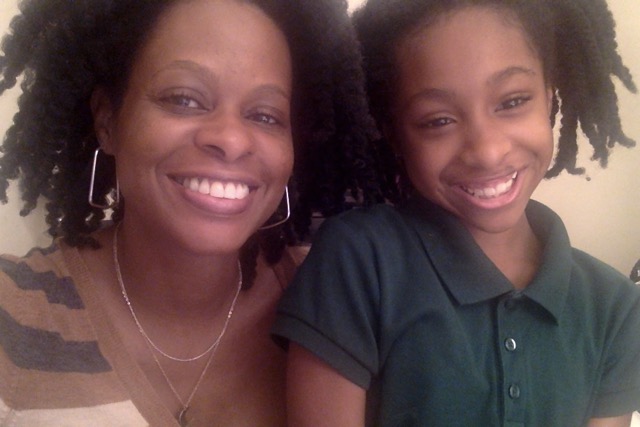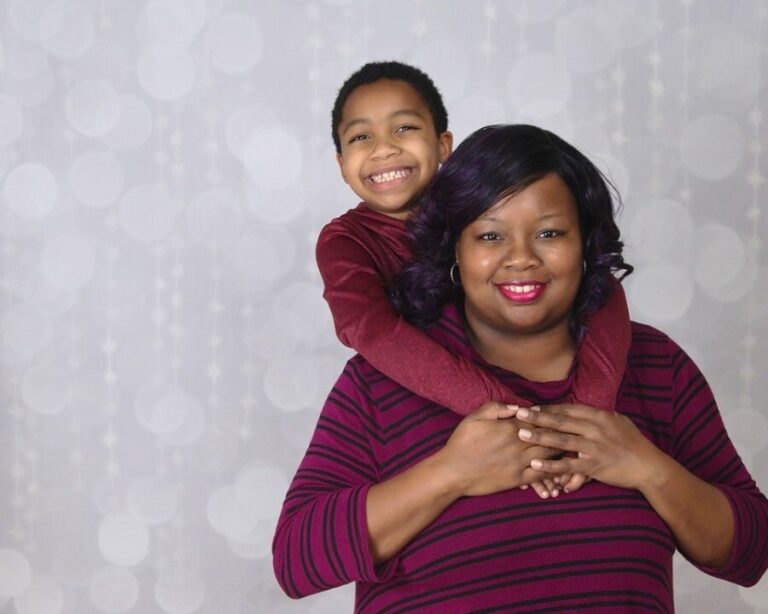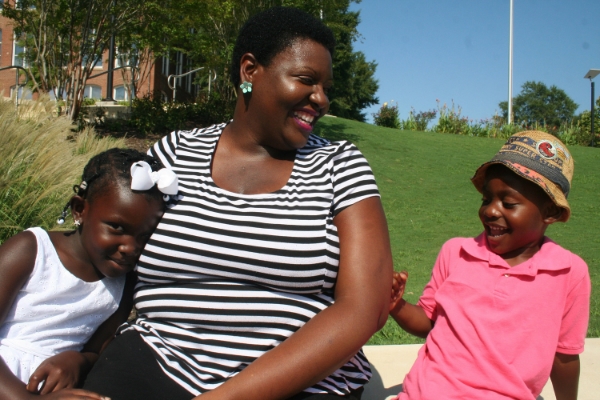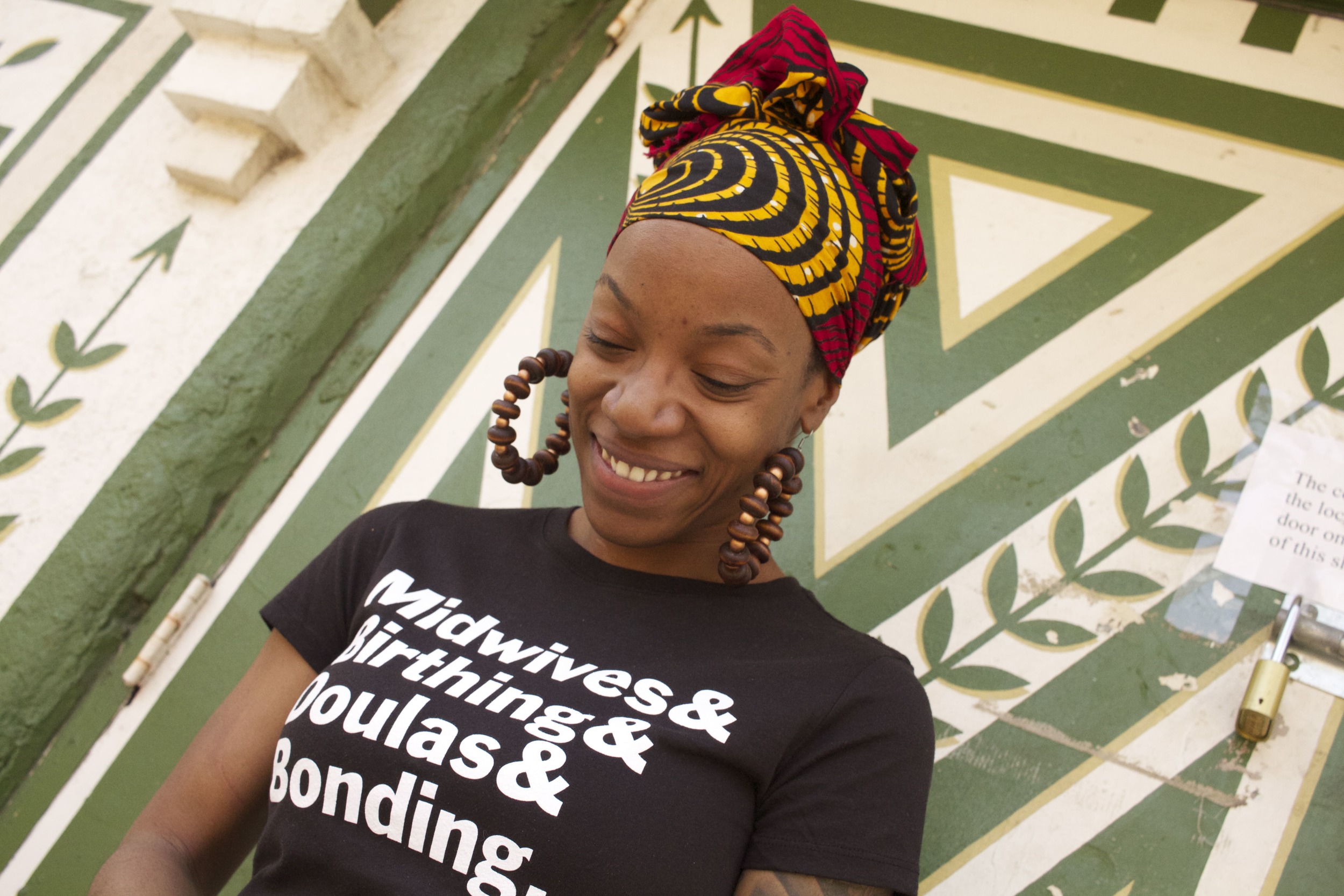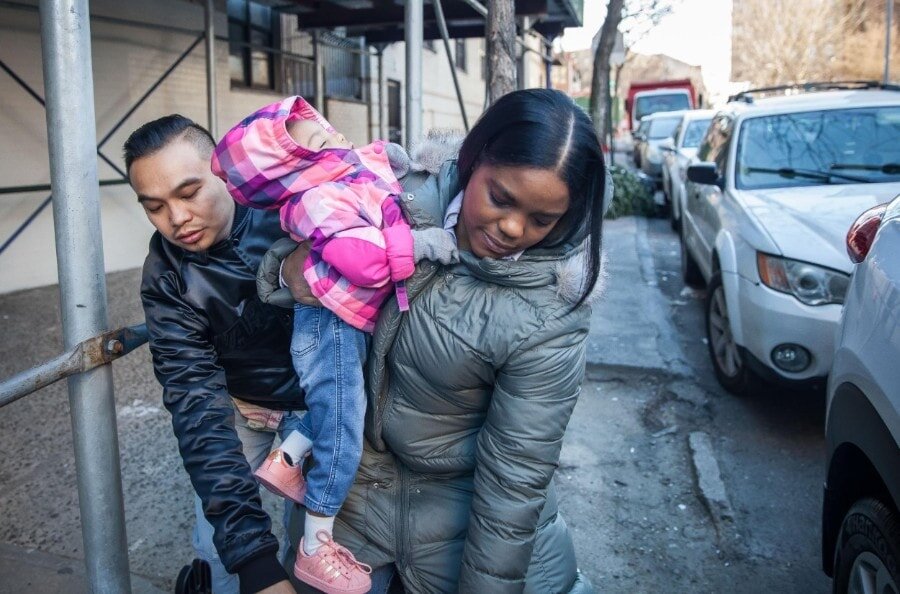Over the last few months, we’ve talked to a number of women living abroad with their families in a series called . But even if you don’t plan on leaving the United States, learning another language can help you and your children become global citizens with a deeper understanding of your identities as people of color.
“Children’s minds are so pliable and adaptable!” says Dr. Kami Anderson, an associate professor at Kennesaw State University, and the author of Language, Identity and Choice: Raising Bilingual Children in a Global Society. “Learning languages is one of the best things we can offer them. I think just the small act of learning a language can help to push children toward a level of mutual respect never before seen.”
Dr. Anderson practices what she preaches in her own home outside of Atlanta, where she and her husband Jeff are raising their four children—Jeffrey II (6), Jachin (4), and twins Jason and Jasira (2)—to be bilingual. The results have been extremely positive, she says. Her eldest “reads at a third grade level, can accomplish math tasks at a second grade level, and has the vocabulary span of a 4th grader.”
We spoke with Dr. Anderson about what piqued her curiosity in other languages, and the benefits of exposing your children to languages other than English.
…it is so much more than teaching my children to count to ten like Dora…
You grew up in Milwaukee, which isn’t exactly the most diverse place in the country. How did you first become interested in studying other languages and cultures?
I went to a gifted and talented middle school that required foreign language. When I was being enrolled, they asked “Do you want French or Spanish?” I chose Spanish, and the rest was history.
I had an awesome teacher who made it a point to give us culture-based lessons. We also had a student in our class from Bolivia who [the teacher] would call on periodically to corroborate what was in our textbooks. I loved that part of the class! I would say the cultural context of language is what solidified it for me.
What inspired you to write your book? What do you hope to accomplish?
There’s this ascribed generalization that Blacks in America can barely speak English, much less another language. I don’t like this stereotype. I have found that there are many of us who not only speak other languages, but are actually bilingual and biliterate.
What comes with this generalization is that those of us who can [speak other languages] are an anomaly, and have achieved some perceived “unattainable goal.” I wrote the book because I want the realness of Black bilinguals to be known. We exist in large number and we struggle within society for this intentional lifestyle, because it is so much more than teaching my children to count to ten like Dora the Explorer. But I also want to show the feasibility of it.
You are a mother of four! How do others respond to your choice to raise them bilingual?
It depends. The first question I almost always get is “Where are you from?” The next question is “Do you tutor?”
It’s not always met warmly, but I am honest about being from Wisconsin and pretty candid about telling folks that tutoring will not get your child to where my children are. [Raising bilingual children] is an intentional lifestyle, not just a cute hobby for the weekends. It’s a lot of work, it takes a lot of planning and effort to make sure that developmentally my children are hitting linguistic milestones in more than one language.
Then you have friends and family. Of course I get the relative or friend who jokingly says to my children “Tell your mother to speak to you in English so you know what she’s talking about!” I see that as a microaggression though; it’s not all that funny to me, and I don’t see too much innocence in those type of statements.
I’m not expecting all of my friends and family to dote over the fact that my children speak more than one language, but I do have an expectation of normalcy, not novelty.
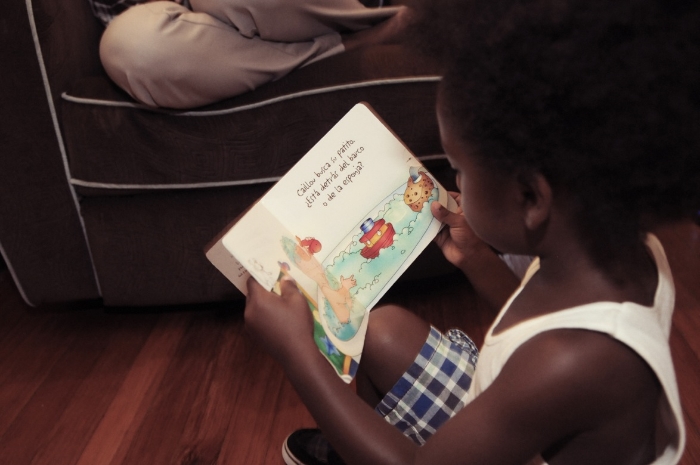
Why is it so important to introduce other languages to children?
By giving [children] more than one language, if done correctly, you are making little global citizens. You expose them to the language, which should lend itself to exposure to the culture, which feeds to a level of cultural consciousness and self-awareness some of us wished we had.
I look at my children, confidently, but respectfully, correcting people when they use a Spanish term incorrectly, asking about where the Black people live in Peru, and teaching adults how to move comfortably across the cultural boundaries we put in place. It’s amazing to watch!
How early can you begin exposing your children to another language?
I started with my children from the day they were born! The earlier the better, actually. It’s best to start while they’re still learning and exploring language. It helps them separate the language rules for the multiple languages easily, because their brains are already set up to do these categories while they are learning to talk.
If you think about it, one of the main reasons why learning a new language as an adult is so hard is because we have to retrain our brains to think differently about the language rules we’ve been following unconsciously for decades. Not all of us do that effectively, that’s why so many [adults] get frustrated.
You are making little global citizens.
How many languages can you introduce to your children at one time?
As many as you can handle! However, you will need to make a firm to commitment to speaking exclusively in one language. Flip-flopping back and forth confuses the language rules I just talked about.
If there are two of you in the household, one speaks in one language [and] the other speaks in another when talking to the child. In my house, I speak Spanish exclusively, my husband speaks English. It helps with the child being clear about which language rules go with which language.
Do you need to be fluent in a given language to teach it to your children? Can you learn together?
Immersion is the best option, but it is not always at our disposal. The ultimate goal is to be sure they hear the language being used correctly as often as possible.
I would encourage making sure that the child gets significant exposure to the language being spoken fluently. Some cable companies have the SAP function on the TV remotes. We use it all the time at our house. It makes the children’s programming they would watch anyway available in Spanish. We change the language options on DVDs to Spanish, we play Spanish radio stations in the car—all to keep the exposure high.
It will take a bit longer for the children to reach fluency if you only do those things, but more and more preschool and public schools are offering dual-immersion programs for education, and that takes the burden off of non-fluent parents significantly.
Do you have any advice for parents who want to introduce a new language to their children?
Just start! Don’t worry about the mistakes. Don’t worry about what it looks like. I find myself making grammatical mistake all the time when speaking to my children. I just correct it and move on.
Exposure is so important. Try taking the DVD they have watched a million times and play it in another language. Find their favorite bedtime story in another language; French and Spanish are readily available at a lot of bookstores/libraries. In our house we have Spanish versions of almost every Ezra Jack Keats book, Goodnight Moon, and Where the Wild Things Are.


